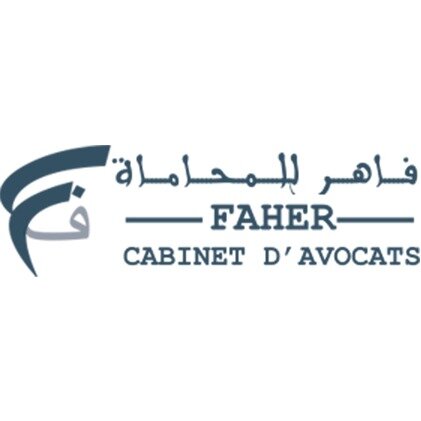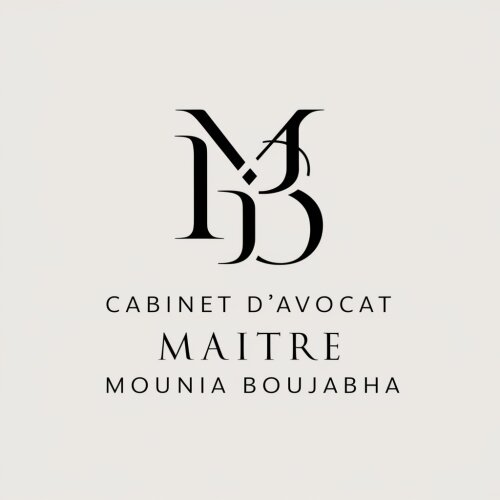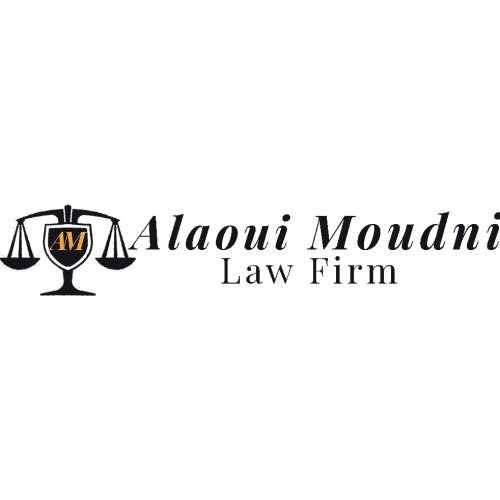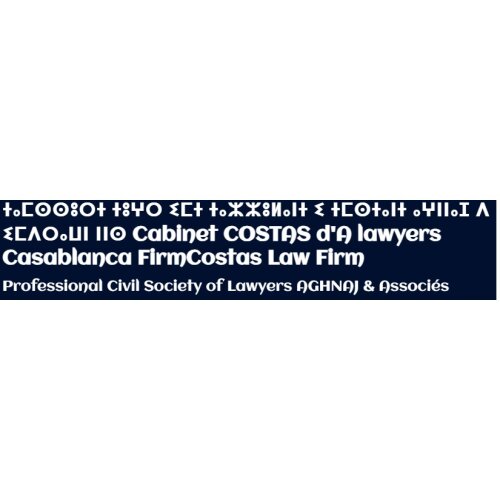Best Civil Rights Lawyers in Casablanca
Share your needs with us, get contacted by law firms.
Free. Takes 2 min.
List of the best lawyers in Casablanca, Morocco
About Civil Rights Law in Casablanca, Morocco
Civil rights in Casablanca, Morocco refer to the fundamental rights and freedoms guaranteed to individuals by the Moroccan Constitution and international human rights treaties. These rights include equality, non-discrimination, freedom of expression, peaceful assembly, and the right to a fair trial, among others. Civil rights are crucial for promoting social justice and protecting individual dignity.
Why You May Need a Lawyer
There are various situations where you may require legal assistance in civil rights matters in Casablanca, Morocco. Some common examples include:
- Discrimination: If you have faced discrimination based on your race, ethnicity, religion, gender, or any other protected characteristic, a lawyer can help you understand your rights and take appropriate legal action.
- Freedom of Expression: If your freedom of expression has been violated, such as through censorship or restrictions on your right to peacefully express your views, a lawyer can advise you on how to protect your rights.
- Unlawful Arrest or Detention: If you or a loved one have been unlawfully arrested or detained, a lawyer can assist in ensuring that your rights are upheld and guide you through the legal process.
- Employment Discrimination: If you believe you have faced discrimination or unfair treatment in the workplace based on your protected characteristics, a lawyer can help you pursue legal remedies.
- Police Brutality: If you have been a victim of police misconduct or brutality, a lawyer can support you in seeking justice and holding the responsible parties accountable.
Local Laws Overview
In Casablanca, Morocco, civil rights are protected by various local laws, including:
- The Moroccan Constitution: The Constitution guarantees fundamental rights and freedoms and serves as the highest law in the country.
- The Moroccan Family Code: This code covers family law matters, including marriage, divorce, child custody, and inheritance rights.
- The Moroccan Labor Law: This law governs employment relationships and includes provisions to protect workers against discrimination and unfair treatment.
- The Moroccan Press Code: The Press Code regulates freedom of expression and outlines the rights and responsibilities of media organizations and journalists.
- The Moroccan Penal Code: This code establishes criminal offenses and penalties, including those related to hate speech, discrimination, and abuse of power.
Frequently Asked Questions
1. What should I do if I experience discrimination?
If you experience discrimination, document the incidents, gather evidence, and contact a lawyer. They will guide you on your available legal options and help you file a formal complaint with relevant authorities or pursue a legal case.
2. How can I report police misconduct?
If you believe you have been a victim of police misconduct, gather evidence, including any witnesses and relevant documentation. Contact a lawyer who specializes in civil rights to help you report the incident to the appropriate authorities and explore legal remedies.
3. Can I be fired from my job for discriminatory reasons?
No, Moroccan labor law prohibits termination based on discriminatory reasons. If you suspect that you have been fired unlawfully, seek legal advice from a civil rights lawyer to assess your case and take appropriate action.
4. Is freedom of expression protected in Casablanca, Morocco?
Yes, freedom of expression is protected under the Moroccan Constitution. However, limitations exist to maintain public order, protect national security, and prevent hate speech. It is important to understand the boundaries and seek legal advice if your freedom of expression has been violated.
5. Are there organizations in Casablanca that provide legal aid for civil rights cases?
Yes, there are organizations in Casablanca that provide legal aid for civil rights cases. Some prominent organizations include the Moroccan Association for Human Rights (AMDH) and the Moroccan Organization for Human Rights (OMDH). Contacting these organizations can help you connect with legal professionals who can provide assistance.
Additional Resources
For further information and assistance in civil rights matters, consider exploring the following resources:
- Ministry of Justice: The official website of the Moroccan Ministry of Justice provides legal information and resources related to civil rights.
- Moroccan Association for Human Rights (AMDH): A non-governmental organization dedicated to promoting and protecting human rights in Morocco.
- Moroccan Organization for Human Rights (OMDH): An independent organization working towards the promotion and defense of human rights in Morocco.
Next Steps
If you require legal assistance in civil rights matters in Casablanca, Morocco, consider taking the following steps:
- Document any incidents or violations of your civil rights.
- Research and contact reputable civil rights lawyers in Casablanca.
- Consult with a lawyer to assess the strength of your case and discuss potential legal remedies.
- Follow the lawyer's guidance regarding filing complaints, gathering evidence, and pursuing legal action.
- Stay informed about your rights by referring to reliable legal resources and organizations specialized in civil rights.
Lawzana helps you find the best lawyers and law firms in Casablanca through a curated and pre-screened list of qualified legal professionals. Our platform offers rankings and detailed profiles of attorneys and law firms, allowing you to compare based on practice areas, including Civil Rights, experience, and client feedback.
Each profile includes a description of the firm's areas of practice, client reviews, team members and partners, year of establishment, spoken languages, office locations, contact information, social media presence, and any published articles or resources. Most firms on our platform speak English and are experienced in both local and international legal matters.
Get a quote from top-rated law firms in Casablanca, Morocco — quickly, securely, and without unnecessary hassle.
Disclaimer:
The information provided on this page is for general informational purposes only and does not constitute legal advice. While we strive to ensure the accuracy and relevance of the content, legal information may change over time, and interpretations of the law can vary. You should always consult with a qualified legal professional for advice specific to your situation.
We disclaim all liability for actions taken or not taken based on the content of this page. If you believe any information is incorrect or outdated, please contact us, and we will review and update it where appropriate.











